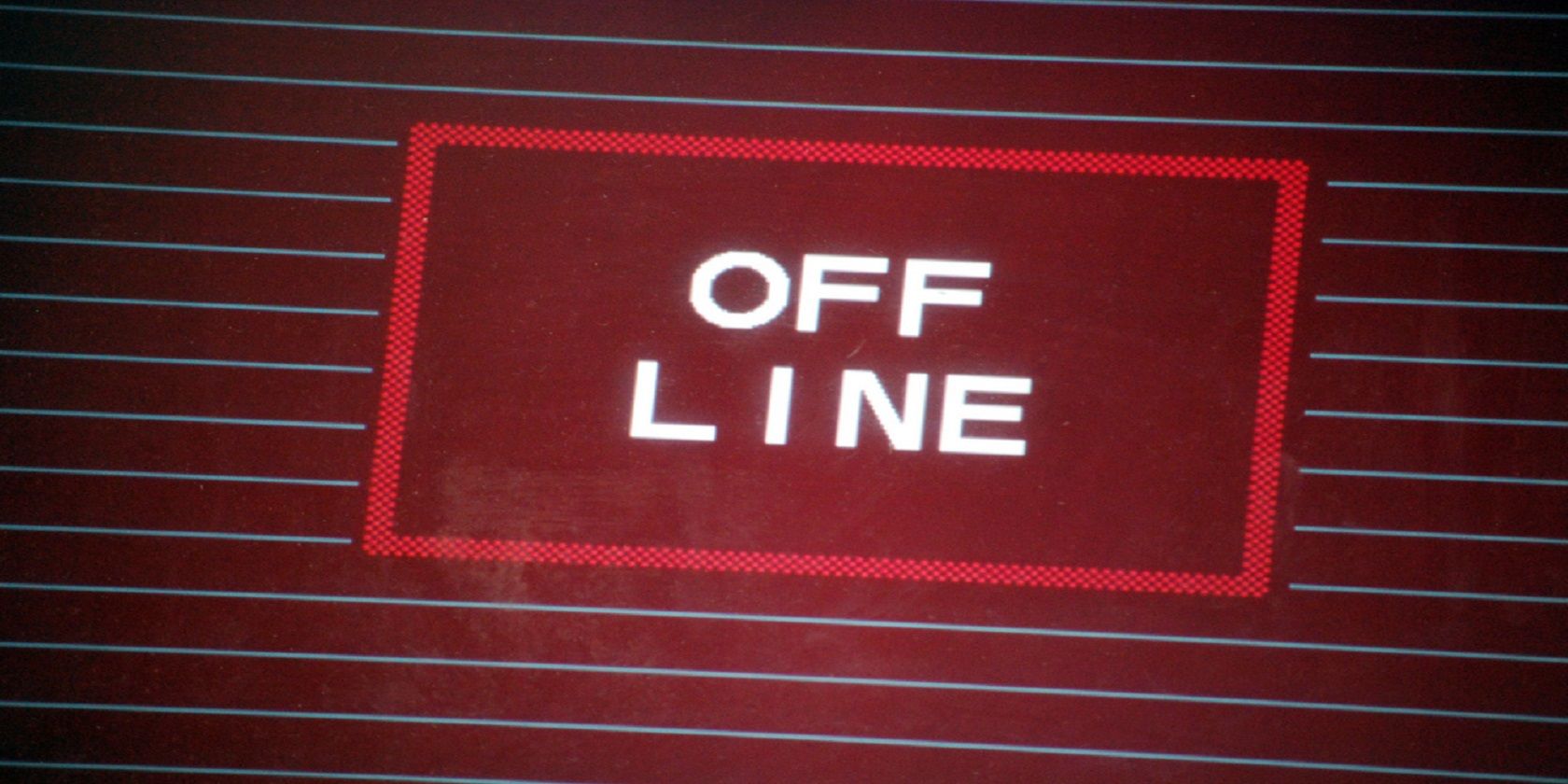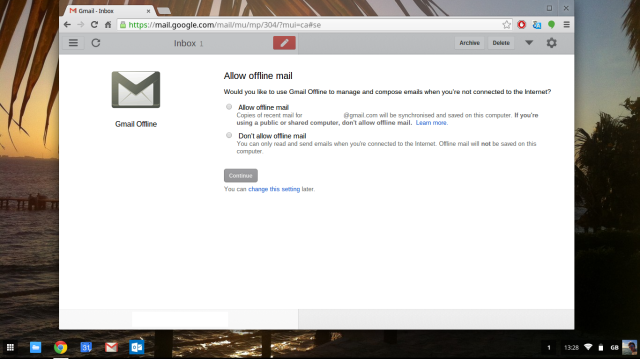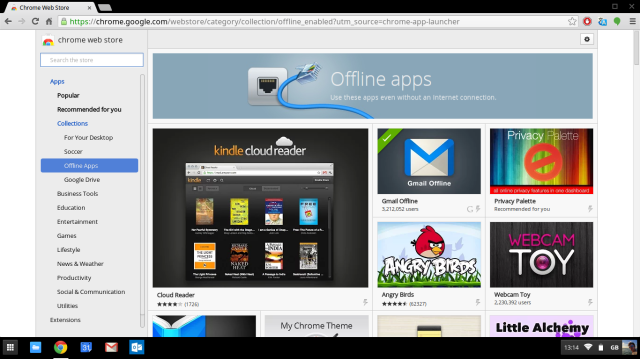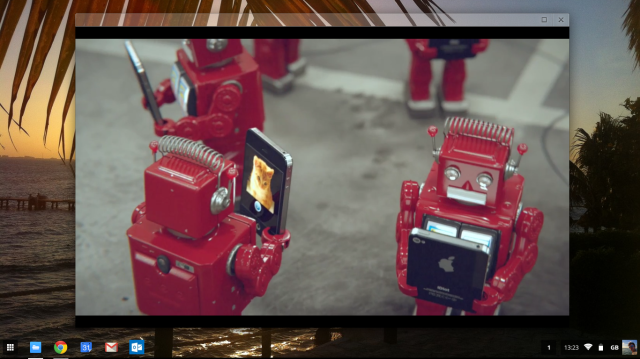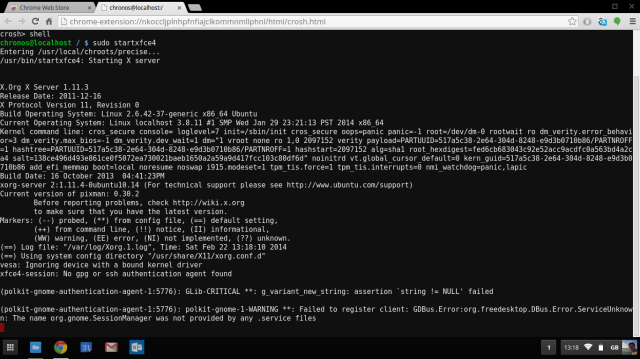One of the biggest criticisms aimed at Google's Chromebooks is that they are online-only machines – ergo, no Internet, no point.
How true is this statement? Is a Chromebook without a connection akin to a car without an engine, or can the device still operate as a valuable and efficient productivity hub?
Native Google Apps
Given so much in modern computing relies upon an Internet connection, casual users are bound to feel a sense of disconnect when offline – regardless of whether they are using a Chromebook or a traditional operating system.
In terms of basic productivity, the Chromebook is just as useful without an Internet connection as a Windows or Mac. Google's office suite (Google Docs, Sheets, Slides and Drawings) can all be set up for offline use – thus enabling you to view, edit, and create files when you're on-the-go. The offline setup is both fast and easy, and can be done entirely through Google Drive by clicking on 'Offline' in the 'More' menu.
Setting up offline access also protects you against a sudden loss of Internet or an intermittent WiFi signal by syncing your files with Google Drive at every opportunity, meaning there is no risk of data loss when a connection is dropped and you can continue to work seamlessly.
Gmail's dedicated offline app allows you to read, search, archive, and respond to emails. Actions will be queued and automatically synchronised with your account at the next available opportunity. Mac users will be familiar with the concept from the Mail app, but it's worth mentioning that Windows has no similar default feature, and would require you to use a desktop email client to achieve the same results. Again, setup is fast and simple, just follow Google's instructions.
The final native productivity app with offline capabilities is Google Calendar. This allows you to view two months' worth of events, respond to invitations, receive reminders, and create new events when disconnected. To set it up, choose 'Offline' from the gear icon in the top right and follow the on-screen instructions.
Chrome Web Store
There is a world of interesting software available beyond the default Google productivity apps. The Chrome Web Store has an entire section dedicated to Offline apps that store data locally and interact more fully with your Chromebook's hardware.
Highlights include Google Keep (an excellent note-taking app), Workflowy (a clutter-free and highly effective project management tool), Pocket (an app for saving interesting content to read later), and Google Play Books, which doubles as an e-reader.
By delving a bit deeper into the offline section of the store you can find news and weather apps such as the New York Times, The Economist and Weatherbug, image editors like Pixlr, Reddit clients, language learning software, PDF converters, code editors, and games such as Angry Birds, Tetris and Solitaire.
All of these combined make for a rich offline experience, both regarding productivity and entertainment. Indeed, it could be argued that the diversity of applications allows for an even richer experience than is possible when offline on a Windows or Mac machine, especially since they will automatically sync whenever possible.
Chromebook Media Player
The Chromebook uses a built-in media player for playing your video and music files. When offline, these can be opened from either the local hard drive or an external drive such as a USB stick.
In principle this gives a Chromebook the same functionality as a PC, Mac, or tablet – though in reality the playable files are limited to .3gp, .avi, .mov, .mp4, .m4v, .m4a, .mp3, .mkv, .ogv, .ogm, .ogg, .oga, .webm, and .wav. For most users this allows the playback of almost every file that they are likely to possess, though power users may find it a bit limiting.
Linux
If you are still not satisfied with the functionality of a Chromebook you can dual-boot an alternative Linux operating system. If you have a machine with Intel architecture, this will enable you to install countless applications that suit your every need. Users with ARM-based devices may find their options more limited, as most Linux software is designed for Intel machines only.
Last Resort
If you absolutely must get online, remember you can always use your mobile device as a Wi-Fi hotspot. This isn't recommended for prolonged usage, however, as Wi-Fi tethering is both a drain on your data-plan and battery life. Obviously, if you do use your phone as hotspot in a public area, please ensure you set a password for your network.
Have Your Say
Do you know some apps that improve a Chromebook's offline functionality, or do you think the Chrome Web Store is a fad that will be usurped? Are Chromebooks the future of personal computing, or can you simply not be persuaded that they're anything more than a glorified web browser? Let us know in the comments below.
Image Credit: Offline by EssG via Flickr

